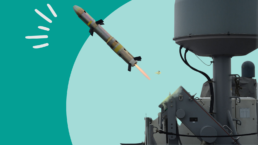Daniel Ellsberg and Norman Solomon, The Nation
The single best option for reducing the risk of nuclear war is hidden in plain sight. News outlets don’t mention it. Pundits ignore it. Even progressive and peace-oriented members of Congress tiptoe around it. And yet, for many years, experts have been calling for this act of sanity that could save humanity: Shutting down all of the nation’s intercontinental ballistic missiles.
Four hundred ICBMs dot the rural landscapes of Colorado, Montana, Nebraska, North Dakota, and Wyoming. Loaded in silos, these missiles are uniquely—and dangerously—on hair-trigger alert. Unlike the nuclear weapons on submarines or bombers, the land-based missiles are vulnerable to attack and could present the commander in chief with a sudden use-them-or-lose-them choice. “If our sensors indicate that enemy missiles are en route to the United States, the president would have to consider launching ICBMs before the enemy missiles could destroy them. Once they are launched, they cannot be recalled,” former Defense Secretary William Perry warns. “The president would have less than 30 minutes to make that terrible decision”.

Recent Posts
How to Organize Safely in the Age of Surveillance
February 22, 2026
Take Action Now From threat modeling to encrypted collaboration apps, we’ve collected experts’ tips and tools for safely and effectively building a…
‘The Siege Must Be Broken’: Countries Called to Ship Fuel to Cuba After Trump Tariffs Struck Down
February 21, 2026
Take Action Now The US Supreme Court’s ruling “implies that Trump’s recent order imposing tariffs on countries selling oil to Cuba exceeds the…
Elite Depravity in Imperial Decline, A Zero Hour Conversation With Richard Wolff
February 20, 2026
Take Action Now “The system self-selects for psychopathy… the most sociopathically obsessive competitor and accumulator of personal power and…
Economics of Health For All: The Plan to Put Health at the Heart of the Global Economy
February 20, 2026
Take Action Now At the World Health Assembly in May, member states may endorse an unprecedented strategy declaring that health is not a cost – but…




